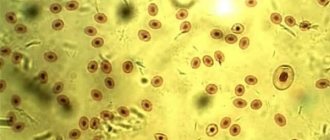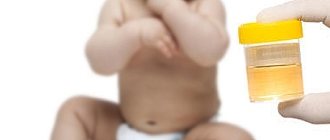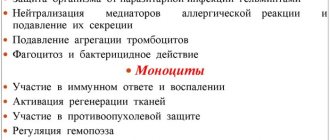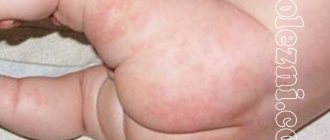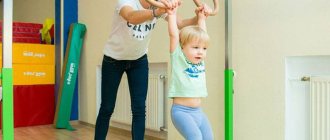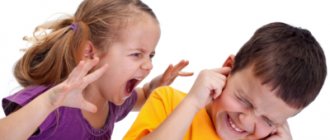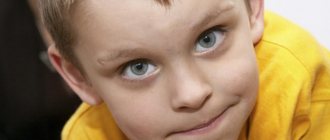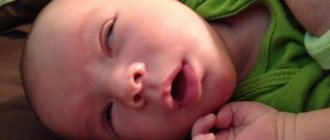Photo: https://pixabay.com/photos/baby-girl-sleep-child-toddler-1151348/
Developmental defects
Often with enuresis there is pyeloectasia of the kidneys, rarely - a small anatomical size of the bladder.
Also important is the incorrect position of the kidneys - nephroptosis.
Diseases of the central nervous system
Developmental defects such as “spina bifida” of the lumbosacral spine are important. You also need to remember about epilepsy.
Stress factors
The incidence of enuresis is increased in families with a low social level, after psychological trauma.
Thus, enuresis is a problem in childhood, mainly due to the development of the nervous system, increased sensitivity to external social and physical factors, and early implementation of genetic information. In adults, this disease is not so common, but those who are “lucky enough” to have suffered it from childhood or to experience it for the first time due to any illness or injury have to overcome many difficulties.
Which specialist treats enuresis?
Based on the above reasons, it follows that enuresis is a disease in the treatment process of which many specialists have to take part.
Among them are pediatricians, neurologists, nephrologists, urologists, endocrinologists, neurosurgeons, psychologists, psychiatrists, physiotherapists, osteopaths, etc. What should parents do and how not to get confused in such a variety of necessary doctors?
The first person you should contact is your local pediatrician. He will be able to assess the urgency of the situation, conduct an external examination, collect the necessary information, give directions for tests and instrumental examination, and then refer you to the necessary specialists. His competence includes prescribing treatment for uncomplicated primary enuresis.
Classification of enuresis in children
By origin
Enuresis is divided into:
- primary;
- secondary.
Enuresis is considered primary when “dry” night periods lasting 6 months or more have not been observed since birth.
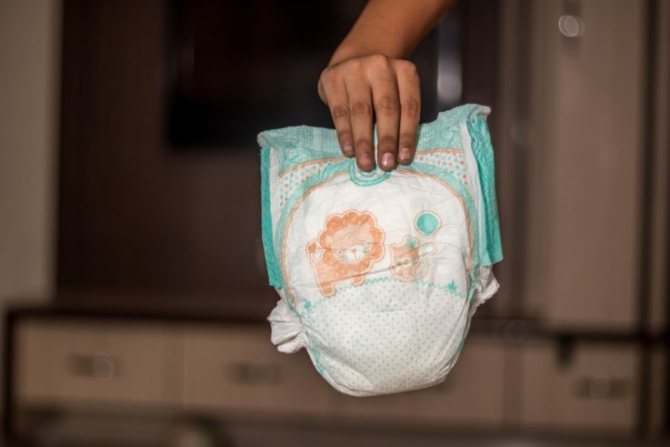
Photo: https://pixabay.com/photos/absorbent-baby-bathroom-care-3509508/
Criteria for diagnosing primary enuresis:
- Physical and mental age is at least 5 years.
- Episodes of urinary incontinence during sleep at least 2 times a month in children under 7 years of age and at least 1 time in older children.
- Absence of other somatic, neurological and mental abnormalities.
Secondary enuresis is a disease in cases where it appears after remission for more than 6 months or after a provoking factor (illness, injury).
Based on the presence of concomitant diseases
Primary enuresis is divided into:
- monosymptomatic;
- non-monosymptomatic.
Monosymptomatic variant, when enuresis is the only sign of trouble in the body. It, in turn, highlights the following options:
- with/without nocturnal polyuria;
- presence/absence of response to vasopressin therapy;
- presence/absence of disturbances in the awakening process;
- presence/absence of bladder dysfunction.
Non-monosymptomatic - in addition to enuresis, the following are also observed:
- symptoms of nervous system disease;
- urinary incontinence during the day;
- inflammatory diseases of the genitourinary system or its anomalies;
- pathology of the digestive system, including constipation;
- symptoms of other diseases.
By severity
| Number of episodes | Easy degree | Average degree | Severe degree |
| Per night | 0-1 | 0-1 | 1-2 |
| During the week | 1-2 | 3-5 | More than 5 |
Prevention of urinary incontinence in children
If there is a hereditary predisposition to enuresis, it is recommended to pay special attention to such children and exclude provoking factors that contribute to the development of pathology.
Other preventive recommendations are as follows:
- Timely introduction of the baby to the potty. The formation of the urinary reflex occurs at approximately 2 years of age. By this age, the child realizes that he has wet himself. Wearing diapers is already restricted. It is advisable to replace regular diapers with reusable panties.
- Increasing the protective function of the body: daily stay in the fresh air, hardening, maintaining proper nutrition with the inclusion of all useful vitamins and microelements in the diet.
- Elimination of hypothermia, which will avoid urinary tract diseases (cystitis, etc.), which are characterized by enuresis.
- Normalization of psycho-emotional state. It is important to exclude any quarrels and scandals among relatives, which can cause psychological trauma to the child.
- Normalization of drinking regime. Correcting fluid intake during hot weather is especially important. In this case, the volume of water is increased. Despite this, it is not abused in the evening.
- Maintain personal hygiene: change underwear daily, use baby soap during water procedures.
If you manage to detect the first symptoms of this pathological condition, you do not need to hope for self-healing, but you should visit a doctor to undergo the appropriate tests. Numerous reviews confirm the complete elimination of pathology at the initial stage of development.
What kind of examination will you have to undergo? Differential diagnostics of the condition
Examination stages
Collection of complaints and medical history
Attention is paid to:
- obstetric history (pregnancy, childbirth, first month of life);
- characteristics of the child’s life and development in the first 3 years (bruises, concussions, neuroinfections);
- genetic predisposition;
- the presence of constipation;
- the nature of night sleep;
- the presence of sleepwalking, grinding teeth, sleep-talking;
- parenting style.
Visual inspection
Includes condition assessment:
- physical development;
- lumbosacral region;
- perineum and genitals.
Clinical urine analysis
Includes assessment:
- frequency of spontaneous urination for 2-3 days;
- “maturity” of urination;
- painful urination;
- the presence of uncontrollable urges and urination.
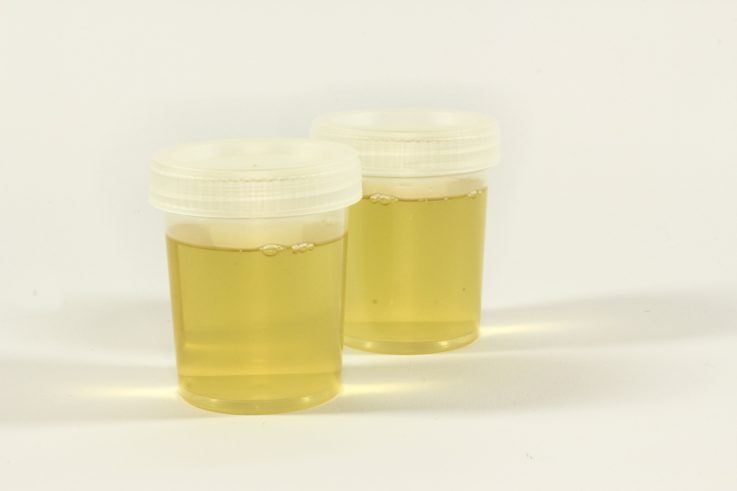
Photo: https://pixabay.com/photos/the-test-urine-container-urine-1006795/
Signs of a mature type of urination: age-appropriate bladder volume, number of urinations 7-9 per day, complete retention of urine day and night, ability to hold and perform the process upon request, emptying when necessary without urge, desire to be alone when wanting to go to the toilet.
Collection of analyzes
Including:
- clinical urine analysis;
- urine analysis according to Nechiporenko;
- if necessary, bacteriological urine culture;
- urine analysis according to Zimnitsky to assess kidney function;
- clinical blood test;
- blood for sugar;
- biochemical blood test (assessment of kidney function, micronutrient deficiency, the presence of antibodies to roundworms, lamblia, thyroid hormone levels);
- feces for coprogram (assessment of digestive efficiency, worm eggs);
- if necessary (complaints of poor digestion, constipation, abdominal pain, pathological changes in the coprogram) - stool analysis for dysbacteriosis.
Instrumental examinations
- Ultrasound of the kidneys and bladder with measurement of residual urine volume and gastrointestinal tract organs.
- X-ray of the lumbosacral spine to check for developmental anomalies.
This is a basic list of examinations that a child can undergo already at the stage of an appointment with a pediatrician.
Specialist consultations
Including:
- neurologist (prescribes an electroencephalogram for differentiation with epilepsy, conducts a study of the neurological status);
- psychologist (assesses the psychological level of development, the presence of deviations, treats in parallel with specialized specialists);
- an endocrinologist if there is a suspicion of diseases of the endocrine glands;
- a urologist and/or nephrologist in the presence of diseases of the genitourinary system. They prescribe a more in-depth examination of her;
- a psychiatrist, if there is a suspicion of mental illness;
- ENT doctor (to identify pathology of the nasopharynx).
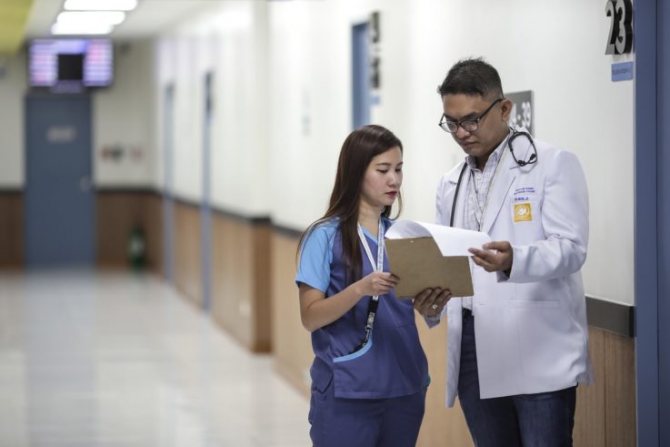
Photo: https://pixabay.com/photos/assistant-office-assistant-3579026/
Differential diagnosis
In the absence of obvious causes of enuresis, exclude the following conditions:
- epilepsy (during sleep, a focus of pathological excitation may appear in the brain stem, affecting the center of urination. As a result, loss of central nervous system control over the bladder and involuntary urination). This can be done using EEG;
- obstructive sleep apnea syndrome (breathing stops during sleep, due to blockage of the upper respiratory tract due to pathology of the ENT organs, excessive decrease in muscle tone). In childhood, the peak appearance of this syndrome occurs between 2 and 8 years. Nocturnal snoring and daytime sleepiness help to suspect. Enuresis in this case occurs due to oxygen starvation of the brain, disruption of the deep phase of sleep, and increased secretion of natriuretic peptide by the cells of the right atrium. As a result, a lot of urine is produced, and the brain’s sensitivity to signals about the filling of the bladder is dulled. Specialists help identify: ENT doctor, neurologist, somnologist; and examinations: polysomnography and pneumogram;
- Diabetes mellitus should be excluded first (it is dangerous due to the rapid development of the clinical picture and sudden coma). Characterized by thirst and polyuria. Enuresis occurs due to a discrepancy between the volume of the bladder and the amount of urine. Identified by examining urine and blood for sugar;
- Diabetes insipidus leads to enuresis (a pathology in which the amount of vasopressin decreases. Characterized by a large amount of daily urine and severe thirst).
Causes of the disease
In newborns and children of primary preschool age up to 2 years, the nerve signal from the bladder to the cerebral cortex is not sufficiently formed. This is why infants do not control their natural physiological processes. This reflex should be fully formed by the age of five .
Common causes of nocturnal enuresis in children:
- Heredity. If the pathology was observed in both the mother and father, the probability of its development in the child is 70 percent. If one parent has no more than 45;
- Organic damage to the central nervous system: various injuries, infections, cerebral palsy;
- The presence of severe mental disorders in the child: oligophrenia to the degree of debility, etc.;
- Pathologies of the bladder, including problems with innervation;
- Anxiety and neurotic disorders;
- Some types of allergic dermatitis. This is associated with severe itching;
- Inflammation of the urinary system;
- Diabetes mellitus and other endocrine diseases;
- Problems with hormones (antidiuretic hormone).
One of the main reasons for the occurrence of enuresis in children is a delay in the development of the nervous system during intrauterine development.
This occurs due to the threat of miscarriage in the mother, late or early gestosis, anemia, hypoxia in the fetus, difficult labor. Motility syndrome can also be a consequence of nocturnal enuresis.
Nocturnal enuresis can be associated with trivial reasons: incomplete potty training of the child, too much sleep in the baby, or simple cold in the room.
Daytime urinary incontinence is caused by weakness of part of the bladder, constipation, and stress.
In what cases does enuresis appear in girls?
- Age. The process of controlling your reflexes has not yet been fully mastered, that is, the nervous system is simply not ready;
- Deep sleepyhead. The girl simply sleeps so soundly that she does not feel her bladder full. This is an innate feature of the central nervous system;
- Drank too much last night. Some children really like to drink compote, tea or kefir before bed. Excess fluid leads to such surprises at night due to still unformed reflexes;
- Hereditary factor;
- Cystitis. As a result of the structural features of the urethra (in girls it is wide), the infection easily penetrates the genitourinary system and the girl begins to go to the toilet frequently, sometimes without controlling this process;
- Back injuries or other injuries;
- Delayed mental or physical development;
- Psychological problem.
In girls, the pathology occurs two times less often than in boys.
Boys suffer from enuresis quite often - approximately 15 percent . Some reasons for the development of incontinence are the same as in girls: insufficient maturation of reflexes, stress, trauma, including birth trauma, and heredity. In addition, the following factors can be identified:
- ADHD. Hyperactivity affects processes in the genitourinary system;
- Hormonal issues. Growth hormone is in deficiency; it also reduces the amount of other hormones responsible for bladder function;
- Kidney and bladder diseases;
- Allergy. It is not yet clear how these two diseases are connected, there are only assumptions.
Portrait of a child who is predisposed to enuresis: in preschool age he is excessively active and features of hyperactivity appear. He has trouble falling asleep, often with tantrums.
However, the sleep is sound, even very sound. From an early age, such a baby is sensitive to weather conditions, which may indicate hidden neuroticism .
If you notice your child has bedwetting, do not scold him under any circumstances. It’s better to try to understand the situation and contact a specialist.
Psychological enuresis occurs in children who are suspicious, prone to long-term worries, and who have problems communicating with peers. Often, urinary incontinence occurs in a child in a family where he is deprived of attention, where there are scandals between parents, in socially disadvantaged families.
When a child has a brother or sister, all the previous attention from the parents often goes to the younger one. Then the child can express an unconscious protest in this way, “fighting” for parental care.
A big problem for psychologists is the awareness of the child’s age, when he already understands the delicacy of the situation. This aggravates the enuresis itself as a result of the fact that the patient is embarrassed and very worried about this. This fact is often hidden from parents.
Find out the causes of urinary incontinence in older people in our article.
Treatment of enuresis in children. A complex approach
Treatment of enuresis depends on the reasons that caused this pathology, age, and concomitant diseases, so it is selected individually and includes a set of therapeutic measures.
Drug treatment
Main groups of drugs:
- vasopressin analogues (Minirin). Used for vasopressin deficiency at night once a day before bedtime;
- M-cholinergic receptor antagonists (Diptran). It has a relaxing effect on the contractile muscle of the bladder. Used for imperative urination syndrome in children over 5 years old;
- antidepressants (imipramine). Relieves excess excitability of the nervous system and improves sleep;
- non-steroidal anti-inflammatory drugs (Diclofenac). Helps reduce the release of prostaglandins, thereby increasing the sensitivity of the kidneys to vasopressin;
- nootropics (Pantocalcin, Picamilon). They improve blood circulation in the brain and increase its resistance to hypoxia. Used for various damage to the nervous system;
- vitamins of group B, A, E. Improve cell nutrition, activate cellular metabolism;
- antibiotics - in the presence of urinary tract infections.
These groups of drugs can be used both in monotherapy and in combination with each other.
Psychotherapy
The goal of psychotherapy is to find the cause of enuresis in the child’s consciousness/subconscious and get rid of it through individual or, preferably, family psychotherapy.
Attention is drawn to the personalities of the parents, communication style and conflicts between family members, and parenting style. An individual lesson with an older child uses hypnosis and auto-training. At a younger age, art therapy has worked well, when a child draws his fears with paints.
ethnoscience
The most commonly used and do not require much effort in preparation:
- decoction of dill seeds: pour 200.0 boiling water over a tablespoon of seeds, infuse and drink once in the morning;
- collection from the herb St. John's wort, leaves and berries of lingonberry: 30.0 collection +300 ml of boiling water and drink in small portions up to 6 times a day;
- Bay leaf decoction: 5 leaves per glass of water, boil for 10 minutes. Take - 3 times a day, half a glass for 7 days.

Photo: https://pixabay.com/photos/food-spice-cooking-sheet-dill-2288443/
Non-drug methods
These include:
- use of urine alarms;
- acupuncture;
- manual therapy;
- ultrasound therapy;
- laser therapy.
As you can see above, there are a lot of methods for treating enuresis and medications. I would like to summarize from the point of view of evidence-based medicine.
Only desmopressin (Minirin) and the method of using “urinary alarm clocks” (due to the low availability of the latter, they rely on therapy with Minirin) have been fully proven to be effective in the treatment of primary monosymptomatic enuresis. These methods are suitable for both short-term and long-term treatment.
In second place in terms of effectiveness for the same type of enuresis is the drug Indomethacin and the method of laser acupuncture.
These treatment methods have been studied, are effective and safe for monosymptomatic primary enuresis.
The use of other groups of drugs and non-drug methods has a number of nuances:
- antidepressants are effective in the treatment of enuresis, but have many side effects even at the minimum effective dosage;
- Diptran, antibiotics, nootropics are effective for non-monosymptomatic enuresis;
- Some non-drug methods are under study (ultrasound therapy, for example).
Memo to parents - how to help your baby
Parents need:
- maintain peace in the family and a friendly attitude towards the child. Do not scold, but involve him in cleaning up after an episode of incontinence;
- positively motivate the child. About the night, ignore mistakes. Keep a urination diary;
- follow the daily routine. The goal is to allow the nervous system to “ripen.” Adequate sleep is necessary (the norm for sleep duration from 4 years to 15 years is from 11.5 hours to 9 hours, respectively), the exclusion of excessive physical and mental stress (revision of the number and need for sections, clubs), limiting the time of using TV and computer;
- follow a diet: last meal and drink 2-3 hours before bedtime;
- follow a diet: limit/exclude foods that stimulate the nervous system (coffee, cocoa, chocolate, spices, carbonated drinks, foods containing dyes and preservatives, allergenic foods);
- do not let the course of the disease take its course, carry out all doctor’s orders and necessary examinations.
Literature
- Union of Pediatricians of Russia, International Foundation for Maternal and Child Health. Treatment of primary nocturnal enuresis in children from the perspective of evidence-based medicine. Moscow 2002
- I. V. Kazanskaya, T. V. Otpuschennikova, ENURESIS: CLASSIFICATION, CAUSES, DIAGNOSIS AND TREATMENT, MOSCOW 2005.
- Otpuschennikova T.V. Modern methods of treating enuresis for urinary disorders in children, Saratov State Medical University named after. V. I. Razumovsky, Ministry of Health of Russia, 2020
- D.M.Sc. prof. V. M. Studenikin and others. Federal State Budgetary Institution "Scientific Center for Children's Health" of the Russian Academy of Medical Sciences, Nocturnal enuresis in neuropediatrics. Modern approaches to treatment.
- T. N. Garmanova, V. A. Shaderkina, Federal State Budgetary Institution "Research Institute of Urology" of the Ministry of Health of Russia, Experimental and Clinical Urology, 2014 No. 2.: Enuresis - theoretical foundations and practical recommendations.
- Chernorutskaya E.I. Enuresis. Causes and treatment. "Doctor Plus"
What is childhood enuresis?
Many have heard of the concept of “enuresis” and understand it as urinary incontinence. This is only partly correct. Enuresis is a type of incontinence that results in involuntary urination during sleep. Up to 20% of children aged 5-12 years face the problem.
In itself, childhood enuresis is not a disease in the usual sense. Its driving mechanism is the immaturity or disruption of the conditioned reflex to the fullness of the bladder.
By the age of 3-4 years, most children are able to control urination during daytime and nighttime sleep. This is an unconscious process, and if for some reason this does not happen by age 5, then you should seek help from a specialist.
For themselves, parents can determine the presence of a problem if a child over 5 years old does not hold back urination during sleep more than a couple of times a month. But only a qualified doctor can diagnose enuresis in girls and boys and differentiate between normal and pathological conditions as a result of a comprehensive examination. It is necessary if you also notice an uncharacteristic smell of urine - for example, acetone.
Nocturnal enuresis in children
The most common cause of concern for parents is childhood nocturnal enuresis. It is extremely rarely a symptom of a serious illness and is currently more associated with parental “addiction” to using disposable diapers. The child does not experience discomfort from wet pants, so the formation of the reflex may take a little longer.
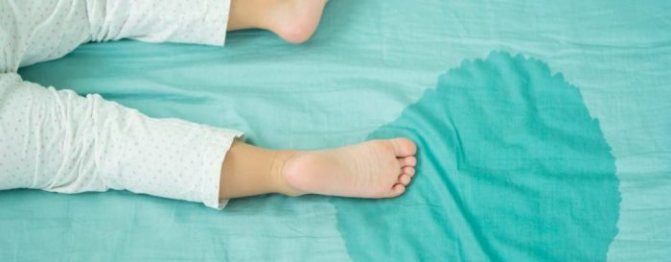
But even in the absence of serious physical problems, occasional failures during night sleep can be psychologically traumatic for the child. And the older the child is, and the more intolerant and unrestrained the parents are in their statements, the more this can affect the child’s psychological state.
Parents should not only be as correct as possible and support their child, but also not hesitate to ask for help in a timely manner and participate in establishing all the details of the problem.
